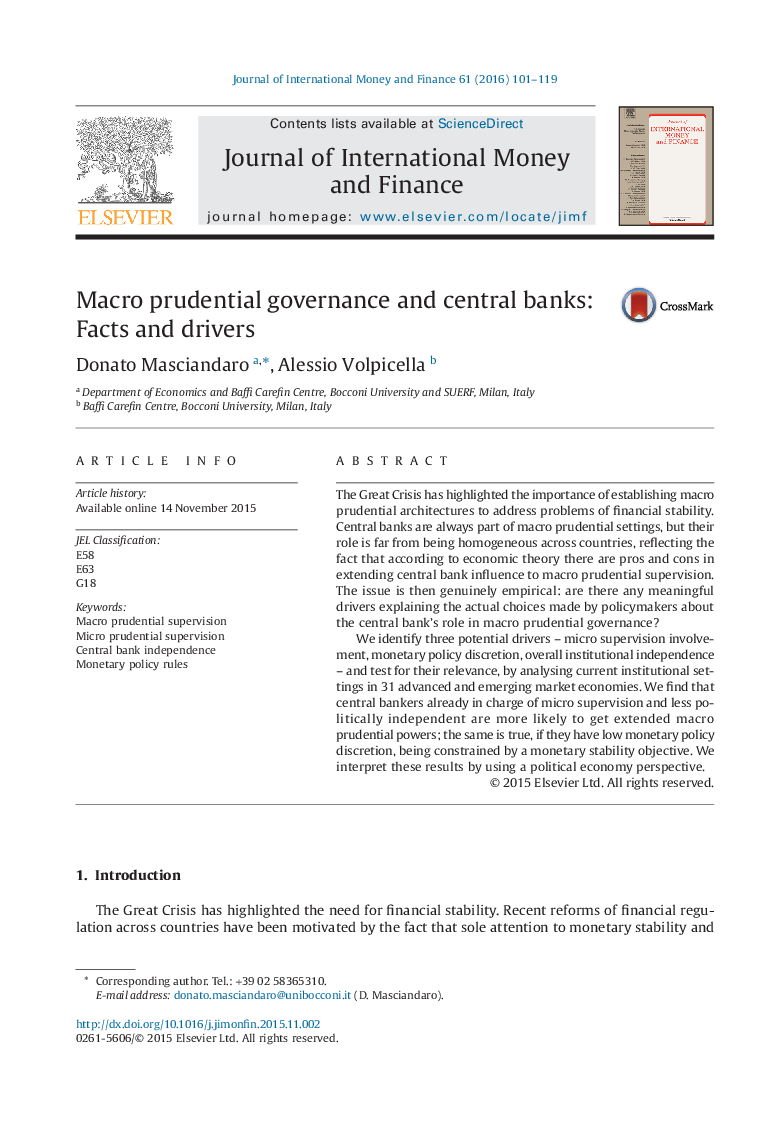| Article ID | Journal | Published Year | Pages | File Type |
|---|---|---|---|---|
| 963812 | Journal of International Money and Finance | 2016 | 19 Pages |
•The Great Crisis has highlighted the importance of establishing macro prudential architectures to address problems of financial stability. Central banks are always part of macro prudential settings, but their role is far from being homogeneous across countries, reflecting the fact that according to economic theory there are pros and cons in extending central bank influence to macro prudential supervision.•The issue is then genuinely empirical: are there any meaningful drivers explaining the actual choices made by policymakers about the central bank's role in macro prudential governance?•We identify three potential drivers for any given central bank – micro supervision involvement, monetary policy discretion, overall institutional independence – and test for their relevance, by analyzing current institutional settings in 31 advanced and emerging market economies.•We find that central bankers already in charge of micro supervision and less politically independent are more likely to get extended macro prudential powers; the same is true, if they have low monetary policy discretion, being constrained by a monetary stability objective. We interpret these results by using a political economy perspective.
The Great Crisis has highlighted the importance of establishing macro prudential architectures to address problems of financial stability. Central banks are always part of macro prudential settings, but their role is far from being homogeneous across countries, reflecting the fact that according to economic theory there are pros and cons in extending central bank influence to macro prudential supervision. The issue is then genuinely empirical: are there any meaningful drivers explaining the actual choices made by policymakers about the central bank's role in macro prudential governance?We identify three potential drivers – micro supervision involvement, monetary policy discretion, overall institutional independence – and test for their relevance, by analysing current institutional settings in 31 advanced and emerging market economies. We find that central bankers already in charge of micro supervision and less politically independent are more likely to get extended macro prudential powers; the same is true, if they have low monetary policy discretion, being constrained by a monetary stability objective. We interpret these results by using a political economy perspective.
